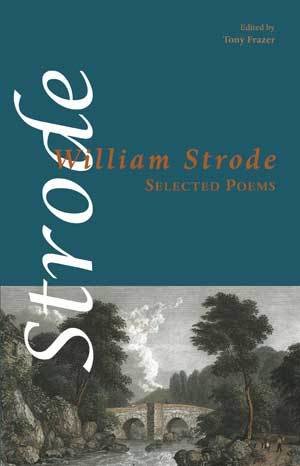Shearsman Store
Strode, William
William Strode (1600/1601–1645) is not a major poet, but nor should he be ignored. At a time when England was blessed with a large number of first-rank poets, a secondary figure such as Strode is easily forgotten, obscured by the shade cast by mightier figures. At the very least, his lyrics and elegies deserve the attention of the modern reader. For the inhabitants of England’s West Country, in particular, Strode—a Devon native—should be seen as part of their heritage, although it must be admitted that his work has more to do with Oxford and the South East than it has with Devon.
William Strode was born in the in the parish of Plympton St. Mary—then a separate township, but today subsumed within the boundaries of Plympton, today an outer suburb of Plymouth. He appears to have been an only son, although the address of one of his poems indicates that he had at least one sister. A successful scholar, Strode went up to Christ Church College, Oxford, probably in 1617, and took his first degree in 1621. He was awarded his MA in 1624, after which he entered the Church, becoming a preacher with the University. In 1629 he was awarded the posts of Proctor and Public Orator. In 1631, he was awarded the degree of Bachelor of Divinity. It seems that he stayed in Oxford for the rest of his days. From 1628 to 1635 he also served as Chaplain to the Bishop of Oxford, a post which would have brought him additional income, and in 1633 he became Rector of East Bradenham in Norfolk, although in all probability he appointed a Chaplain to manage the living. From 1639 to 1642 he was Vicar of Badley, Northants, no doubt in a similar manner. Strode was married and had one daughter, but was to die in 1645 in Oxford, and was buried in Christ Church Cathedral.
Shearsman Books Ltd. All rights reserved
Shearsman Books Ltd registered office 30–31 St. James Place, Mangotsfield, Bristol BS16 9JB ( address not for correspondence ). Registered in England as company no. 4910496.



